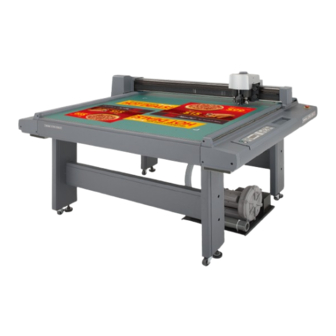
User Manuals: MIMAKI CF2 Series Cutting Plotter
Manuals and User Guides for MIMAKI CF2 Series Cutting Plotter. We have 3 MIMAKI CF2 Series Cutting Plotter manuals available for free PDF download: Operation Manual
Advertisement
MIMAKI CF2 Series Operation Manual (172 pages)
RECIPROCAL FLAT BED CUTTING PLOTTER
Table of Contents
MIMAKI CF2 Series Operation Manual (186 pages)
Reciprocal Flat Bed Cutting Plotter
Table of Contents
Advertisement


